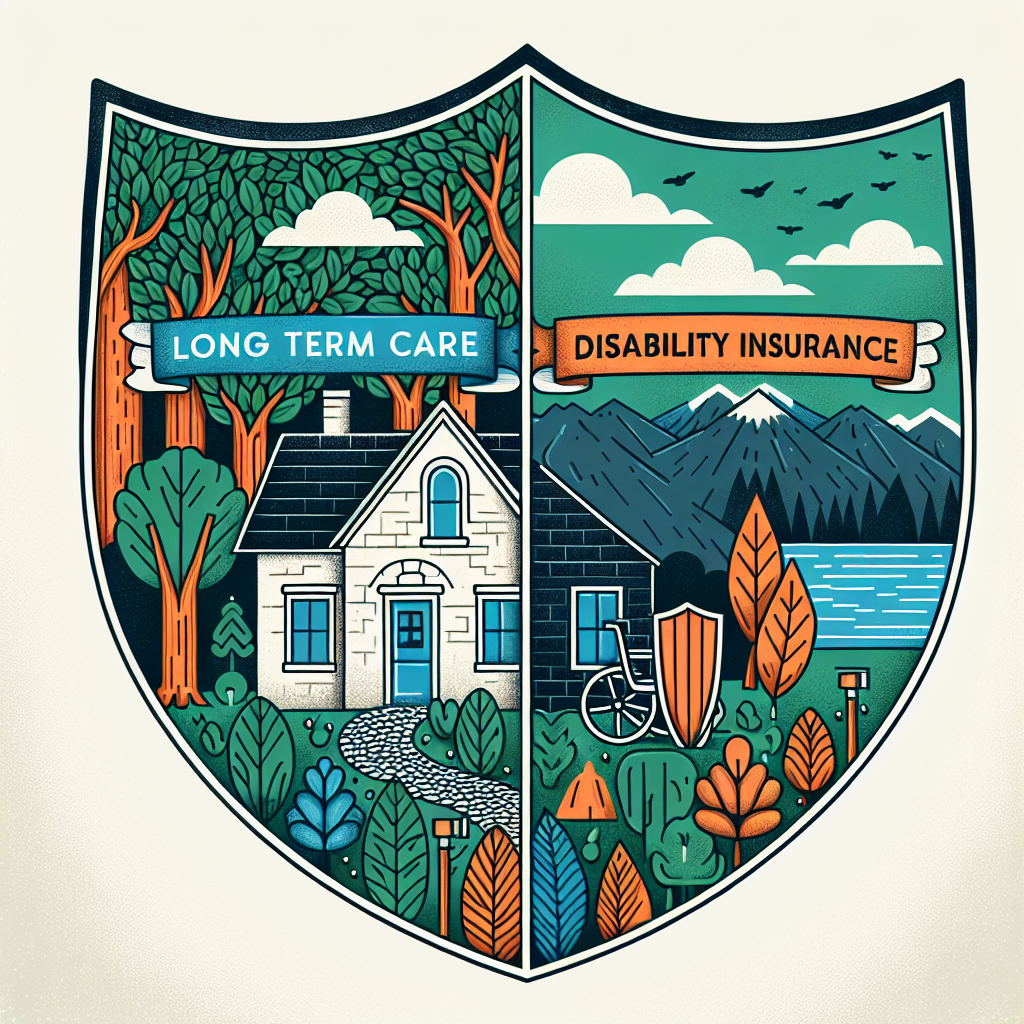Filed under Disability Insurance on
Long Term Care vs Disability Insurance: Key Differences

In today's world, navigating insurance options can be overwhelming, especially given the variety of products available. Among the most significant choices are Long Term Care (LTC) insurance and Disability Insurance (DI). These two financial safety nets often cause confusion because both are designed to offer income protection in times of need. However, understanding their distinctions can help individuals make more informed decisions based on their specific circumstances and needs. This article delves into the key differences between Long Term Care and Disability Insurance to offer clarity.
Understanding Long Term Care Insurance
Long Term Care Insurance is designed to cover the costs associated with long-term care services, often required by individuals who need assistance with daily activities over an extended period. These services can include nursing home care, assisted living, or in-home care support. As the population ages and longevity increases, the demand for LTC insurance has risen significantly.
Benefits of Long Term Care Insurance
LTC insurance primarily benefits older adults who might face difficulties in performing daily activities due to chronic illness, disability, or cognitive impairment. Coverage typically includes:
- Home care services, allowing individuals to receive support within the comfort of their homes.
- Access to assisted living facilities, which provide a supportive community for those requiring moderate assistance.
- Nursing home coverage, ensuring comprehensive medical care for those with significant health needs.
- Respite care, offering temporary relief for caregivers.
The financial relief provided by LTC insurance ensures that individuals don't exhaust their life savings on care, preserving their estate for heirs and maintaining quality of life.
Factors Influencing Long Term Care Insurance
The cost of LTC insurance depends on several factors:
- Age at Purchase: Premiums are generally lower for younger buyers.
- Health Status: Better health means more favorable rates.
- Coverage Limits: The breadth and depth of the policy affect pricing.
- Policy Features: Additional features like inflation protection can increase costs.
Overall, Long Term Care Insurance is an essential consideration for those planning for potential future healthcare needs.
Disability Insurance Explained
In contrast, Disability Insurance offers income protection in the event that an individual becomes unable to work due to a disability. Unlike Long Term Care Insurance, which focuses on healthcare costs, Disability Insurance replaces a portion of lost income, helping maintain financial stability during periods when earning potential is compromised.
Types of Disability Insurance
Disability Insurance typically comes in two main forms:
- Short-Term Disability Insurance: Provides income replacement for a temporary period, usually between three to six months. This is suitable for temporary conditions.
- Long-Term Disability Insurance: Offers coverage for more extended periods, sometimes until retirement age, depending on the policy. It covers more severe, long-lasting disabilities that prevent one from working.
Both types are essential for providing financial stability when unforeseen health issues arise.
Benefits of Disability Insurance
The peace of mind offered by Disability Insurance is invaluable, ensuring that essential expenses, such as mortgage payments, utilities, and everyday living costs, are covered even when an individual's ability to earn an income is impacted.
Key advantages of Disability Insurance include:
- Income Replacement: Ensures continuity of income when you're unable to work.
- Flexibility: Received payments can be used for any need, not just healthcare costs.
- Living Benefits: Enhances financial security, allowing individuals to focus on recovery without financial strain.
Comparing Long Term Care and Disability Insurance
While both Long Term Care and Disability Insurance serve as financial safety nets, they cater to distinct needs and scenarios. Understanding the differences is crucial for selecting the right coverage.
Purpose and Coverage
The primary difference lies in their purposes: LTC focuses on covering long-term care costs due to aging or chronic illness, while Disability Insurance addresses income loss from an inability to work.
When considering coverage:
- Long Term Care Insurance: Covers services such as in-home care, assisted living, and nursing facilities.
- Disability Insurance: Replaces a portion of income during the working years when you can't perform your job.
Triggers for Benefits
The circumstances under which benefits are dispensed also differ:
- LTC insurance benefits are typically activated when an individual needs help with two out of six activities of daily living (ADLs) — such as bathing, dressing, or eating.
- Disability Insurance depends on your inability to work due to accident or illness, as certified by a medical professional.
Policyholders' Demographics
Another contrast surfaces in the ideal policyholder's demographic, with LTC insurance mostly appealing to older adults planning for future incapacitation risks. In contrast, Disability Insurance is vital for working-age individuals who rely on their salary.
Making the Right Choice
Deciding between Long Term Care insurance and Disability Insurance — or opting for both — is a personal decision that hinges on individual lifestyle, financial situation, and future planning. Here are some considerations:
- Evaluate Needs: Are you more concerned about income replacement in case you can't work, or covering potential long-term care costs?
- Budget Considerations: Assess your financial ability to pay insurance premiums alongside other expenses. LTC premiums can rise significantly with age.
- Existing Coverage: Check employer benefits and other existing policies, which might already provide coverage for specific needs.
- Consult Professionals: Speaking with a financial advisor or insurance broker can personalize your options, making sure the policy aligns with your life goals.
The Future of Long Term Care and Disability Insurance
As demographics shift with an aging population and evolving workplace dynamics, both Long Term Care and Disability Insurance are expected to adapt and remain crucial components of comprehensive financial planning. Technology-driven advancements are refining how policies are crafted, delivered, and utilized, enhancing accessibility and customization for diverse needs.
Industry Trends: The drive towards hybrid policies that blend LTC with life insurance is reshaping how consumers view insurance, offering greater flexibility and benefits. Simultaneously, the pandemic's impact has heightened awareness around income protection, increasing the appeal of disability coverage.
Both types of insurance play pivotal roles in securing a financially stable future. Whether you're planning for potential long-term care scenarios or seeking assurance that you can replace income during unforeseen events, understanding these options is a significant step toward comprehensive financial wellness.
With informed decisions, individuals can navigate the complexities of insurance planning, ensuring peace of mind today and protection for tomorrow.





